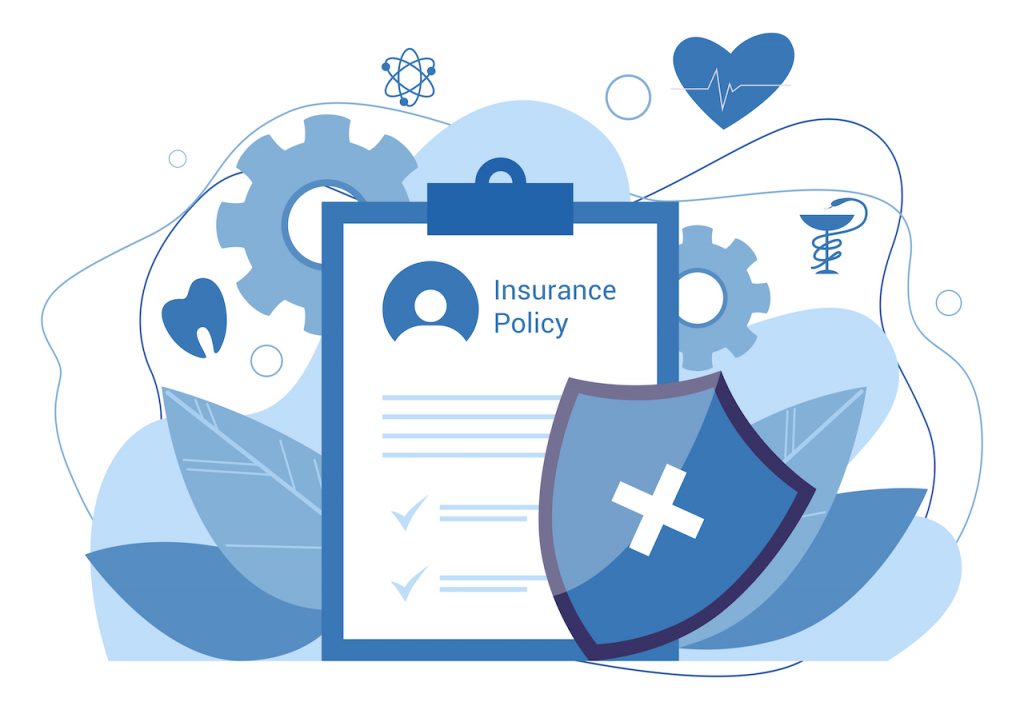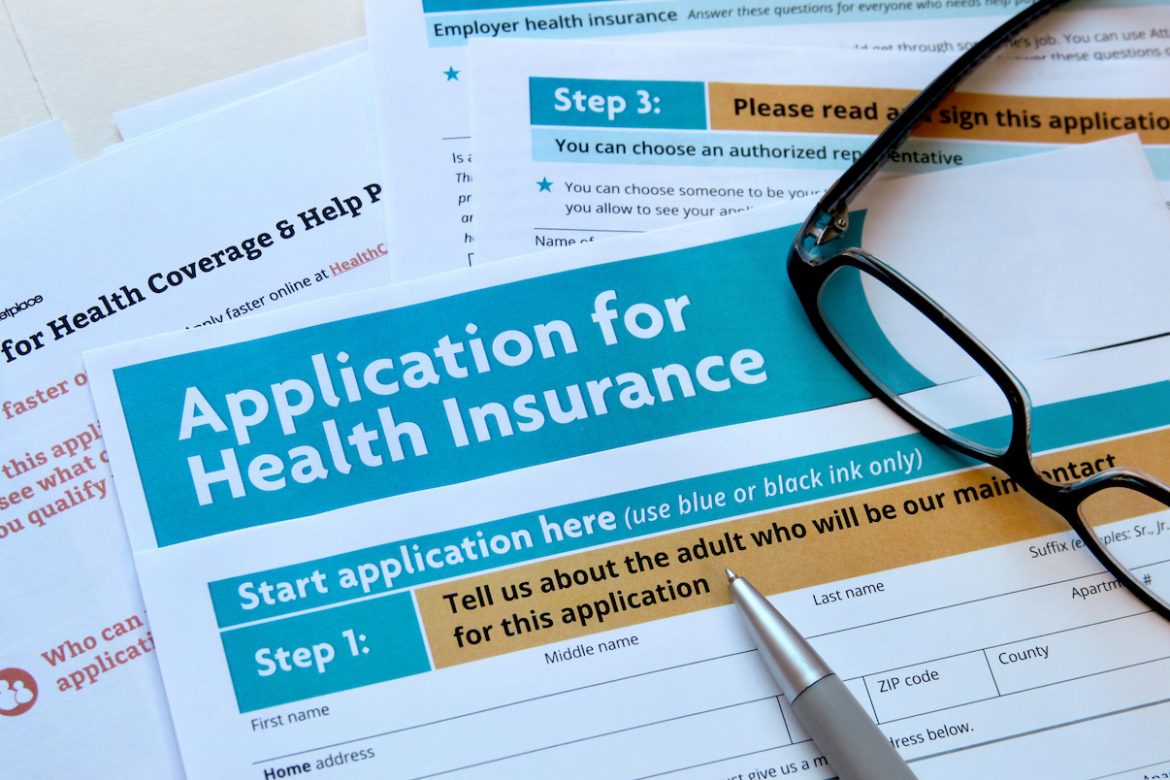One of the most significant investments you can make as an individual or as a family is health insurance. But finding the best health insurance plan that suits you on a personal level or a family package can be a challenging process. Apart from the wide range of insurance plans that are at your disposal, you also have to face the intimidating jargon from insurance companies. Trying to grasp a real understanding of what Policy wordings mean is further confusing.
What is Health Insurance?
The very first question you should be asking, what it is and how it works. Health insurance is a type of insurance that provides financial cover in assisting a policyholder with payment for any medical bills incurred. The insurance firm can either pay the policyholder directly or send the money to the hospital management directly. This type of insurance is usually used by employers to attract the best hands to work for them. Though there are plenty of different types of health insurance, generally they serve only one purpose — to give you assurance.
How Health Insurance Works?
Health insurance is without mincing words, a tricky concept. Policyholders who want to benefit more from the insurance plans should seek out medical care in hospitals under the network that is covered by an insurance provider. Otherwise, they would cover a higher percentage of medical bills. There are even situations where the insurance provider would vehemently refuse to settle any claim outside their hospital network.
So, in case of an accident, your health insurance to be there to cover the overwhelmingly expensive hospitalization costs. But that’s for sure depends on the type of health insurance you’re getting. A very good tip is, not every plans work the same. Some covers for surgical costs, while some don’t.


Benefits of Health Insurance
Nobody plans on getting sick at any point in time. But there comes a time when we do need medical care. It is at this point that a health insurance plan comes in handy. The benefits you stand to gain from investing in a health insurance policy are:
- Unexpectedly high medical bills that could arise from inflation can be sufficiently catered to.
- With the network hospital scheme, you get to pay less. This is without even meeting up with your insurance deductible.
- Access to preventive care like medical checkups and investigative tests, free of charge. You do not have to meet your insurance deductible before you enjoy this.
- No penalty to be paid. This only applies if you have an existing health insurance marketplace policy before 2018.
- Important benefits that are needed to keep maintaining good health and provide quality healthcare are covered by a good health insurance policy.
However, if you cannot get an affordable health insurance plan, you can go for a short term medical plan. This is better than not been a health insured at all. With a short term health insurance plan, you can still afford to pay for medical bills. There are now a number of short term medical insurance plans available for you to choose from.
To cap it all, choose a health insurance plan that covers you sufficiently. If you desire a policy that caters to all the 10 essential health benefits, you can go for the Obamacare Act. If on the other hand, you are a very healthy person who can do without Obamacare, you can choose to get a short term health insurance.
Why is Health Insurance So Costly?
Many people had wondered why health insurance is so expensive. The rising costs of quality healthcare have resulted in a corresponding increase in health insurance. Health insurance premiums in America has risen as high as $20,000 in 2019. This high premium has made a lot of Americans invest in insurance plans with lower premiums or discouraged them from buying a health insurance policy altogether. Knowing that a premium health insurance can cover almost every medical expenses you might face, the math can already do the justice for you.
However, there are two factors are generally seen as the cause for the sharp increase in health insurance premiums and deductibles. These includes:
- Government healthcare policies
- Changes in lifestyle
Government policies in the health sector such as Medicare have made the demand for quality medical treatment rise to unprecedented levels. This has had an effect on the premium costs for health insurance.
As regards lifestyle changes, over the last decade, there has been an increase in the prevalence of chronic ailments such as cardiovascular diseases and diabetes. As more attention is made towards finding a cure for these chronic diseases, medical care costs have also risen. This, in turn, has made healthcare insurance premiums rise.
Health insurance deductibles have also risen as more insurance providers are shifting the burden of accessing quality medical treatments onto policyholders. Deductibles or Out-of-pocket costs in recent times have increased to as high as $13,000 for American families.
The Cost of Health Insurance
How much is health insurance? The health insurance premiums paid monthly or annually varies. The amount of premium is not determined by the gender or the health status of the policyholder. They are a number of factors that determine the premium cost such as
- The existing Federal and State laws which determine how much an insurance provider can charge as a premium
- The type of insurance plan chosen by the policyholder
- Buying an insurance policy individually or through your employer
- Wages level
- The size of the place you work
- Place of residence
- Your age, physical and non-physical condition
- Smoker or nonsmoker
Last year, the average monthly health insurance premium cost for an individual is $440 while for a family is pegged at $1,200.
The easiest way to get the amount to be paid for health insurance premiums is to get an insurance quote from a licensed insurance provider.
What to Take Note When Choosing Health Insurance?
A good health insurance policy should be able to reimburse you with as much as 90% of the total money you spent on medical bills. To avail yourself of such beneficial policies, you have to take time to carry out research. Make sure it’s value for money regarding bills coverage and its premium. You should put the following factors into consideration;
The Premium Plan
This is the amount of money a policyholder would pay in monthly installment or at once towards covering the overall cost of a premium plan. The benefits you stand to gain from this type of insurance depends on how much you pay as a premium. Though you have to invest in a health insurance policy that fits into your budget, lower premium means you have a higher insurance deductible or your preferred hospital might not be in the hospital network.


Claims Process Efficiency
The number one benefit of buying a health insurance policy is to get an insurance provider to help when the time class for it. One of the most important things to consider is the amount of time it takes to get an insurance claim settled, and the ratio of a claims settlement. When the claim settlement time is very fast and the ratio of claims settlement is on the high side, it is a good sign that investing in health policy with the insurance provider is a great choice.
You wouldn’t want to be stranded financially because your insurance provider takes a long time to settle your claim, or they only give a small amount from your claim. Getting a health insurance plan that offers maximum cover is your best option.
The claim process usually involves 5 steps, which usually commences from the time you make a report to the time it is settled. These stages are:
- Meet with your insurance provider
- Investigations into your insurance claims by an insurance adjuster
- The insurance policy you have is reviewed by the adjuster
- Evaluation is carried out by your instance provider
- Payment of your settlement claim
To know how great an insurance provider is at settling claims efficiently, visit their website and check out their ratio of a claims settlement. Endeavor also to check out how long it takes for them to settle insurance claims of their customers
Copayments Percentage
Copayments have a policyholder paying a certain amount of money on top of their insurance premium whenever they meet with a doctor. Buying of prescribed drugs, medical treatments in intensive care units, and emergency rooms also fall under this copayment category.
Copayment costs vary, as it depends on how much you pay a premium monthly. The higher you pay as insurance premium, the lower your copayment costs. The opposite also applies when you have a lowered premium.
For people who have to pay regular visits to the medical practitioner, it is advised that they buy health insurance plans with very low copayment costs.
Hospitals Network
The top insurance providers have links to a good number of hospitals, thereby enabling their customers to avail themselves of quality treatment wherever they travel or relocate, as the case may be. Buying a health insurance policy with these official providers also guarantees you rendered treatment at a hospital even when you do not have enough money. This is known as a cashless treatment. Hospitals like these are known as network hospitals because they are under the insurance coverage network of the insurance provider.
All you do is go to such a hospital to receive treatment, while your health insurance provider settles the medical bills with the hospital management. The only time you would have to add your personal money is if the medical bills exceed your insurance cover. So, before you buy a settle on a plan, go through their list of network hospitals. If you find out that the hospital where you and your family go for medical treatment is not among their list, you would be better off served not dealing with them. You should ask your hospital about their insurance health policy providers.
Pre/post-hospitalization Coverage
Before you get admitted into a hospital, they are certain tests that would be carried out. You would have to pay for these tests. Any money spent on medical bills before and after you get admitted into the hospital are classified under Pre/Post hospitalization bills. Sometimes, the medical bills continue even after being discharged from the hospital.
Paying for home medical services such as routine health check-ups by the doctor, stay-in nurses, further medical tests, or drugs taken during this period are known as post-hospitalization bills. Investing in a health insurance plan that covers such expenses is of benefit to you as an individual and for the family.
Any health insurance policy that covers pre/post-hospitalization bills is best as it offers what is known as maximum cover.


Prescribed Medications Coverage
It is a good thing when your health insurance plan covers costs incurred when you buy drugs prescribed by a doctor. But it should do more than that. It should also cover the particular prescribed drugs you need. Many of the insurance firms categorize drugs into two.
There is the Generic category. This caters to drugs that have lower copay costs. The second category is the drugs produced by top pharmaceutical companies. These drugs usually have very high copays attached because they cost more.
Policyholders are usually mandated by insurance providers to try out generic drugs before going for the costly ones. Even then, policyholders would have to get authorization from medical personnel before they would provide assistance.
So, it is in your best interest to research the particular drugs a health insurance plan would cover. This would help you in determining your copay costs.
Medical Checkups at No Cost
Invest in a personal or family plan that does not get you paying for any routine medical check-up you need. This should include any medical tests that you might need to carry out. These tests or medical checks should not have an effect on the premium you pay monthly when your policy is due for renewal.
Effects of Inflation in Health Insurance Policy
Investing in a health insurance policy with huge financial returns is a very important factor to consider. When you invest in insurance policies that offer very little cover, you end up with little or not when you need help from your insurance provider. In these days of massive advancements in the medical world, the prices of medical equipment, processes, and surgeries have risen.
Health insurance plans that assure you of over $500,000 in returns are no longer enough in providing sufficient medical cover. This is because inflation can take place unexpectedly. The rising costs of inflation in recent years has affected quality medical treatments at affordable prices. This can be noticed especially in risky surgeries such as heart transplants, plastic surgeries, and hip replacements. A surgery procedure that should cost $300,000 before inflation could rise to as high as $600,000 when inflation sets in.
Buying a health insurance policy that guarantees you getting huge financial returns is the best option, as it covers any uprise in medical bills caused by inflation.
Maternity Cost Coverage
The rising costs of medical bills have had a corresponding effect on the cost of pregnancy procedures. It is of paramount importance as a woman or as a married couple to invest in a health insurance plan that covers maternity costs. This is classified under maternity benefits in such plans.
There are four important things to look out for in particular to this plan as regards maternity expenses:
- The period you have to wait before you can make an insurance claim as regards maternity bills
- The sub-limit
- If there is a cover for outpatient medical bills
- Any particular medical procedure that is excluded from the policy.
The Infamous Deductible
An insurance deductible is the fixed amount of money you would have pay on an insurance claim before your insurance provider eventually covers the remainder. In simpler terms, it means that it is the amount of money you have to take from your personal finances before the insurance coverage kicks in.
When you pay the deductible, you would be paid the remainder of your insurance claim by your insurance provider. You will be paid up until the insurance cover limit is reached. When you have high deductible it translates to you paying a lower premium.
People who are generally in good shape benefit most from having an insurance policy with a higher deductible. For those who often have to spend on medical bills, an insurance plan with a lower deductible is certainly a better choice.
What is a deductible in health insurance? A deductible, in this case, is unlike car and home insurance deductibles. It is common to be paid over a year whereas a car deductible is paid with each claim. An example of a deductible in health insurance is free preventive care.
However, you should know that not all medical expenses can be classified under a deductible. Take the effort to read through your health insurance policy to know what is a deductible.
Renewal Fees
You should buy health insurance policies that come with renewals. That is to prolong the coverage by renewing your insurance plan should be done when it is due. It’s best when you can renew your insurance plan through the website of your insurance provider or through an agent at their office close to you.
You can also choose a health insurance plan that comes with a lifetime renewal option. This option comes in handy especially when you want your old parents to be beneficiaries of your policy. It even helps you when you are in your old age.
The upshot? There is no age limit in health insurance packages with this option.
Customer Reviews
Taking time to read through all the customer reviews is important. Be it positive or negative, reviews give you an insight into the workings of the insurance provider you are thinking of doing business with.
Short-term Health Insurance
Short term Health Insurance, otherwise known as short term medical insurance, is an option for people who cannot afford to get a premium policy due to unforeseen circumstances. The short term medical insurance plan is not required to meet the requirements of the 10 health essentials as stipulated by the Affordable Care Act. Thus, they were required to pay a hefty tax penalty of $695 or 2.5% of the household income. But with the 2017 Supreme Court ruling striking out the fine, more people are taking advantage of the flexibility that the short term medical insurance offers especially in terms of affordability.
The Takeaways
Now you know what health insurance is, how it works and the factors you should consider before investing in one. So what happens if you don’t have any of these coverages? Perhaps, you should start investing one. In fact, it’s always better to be safe than sorry.



